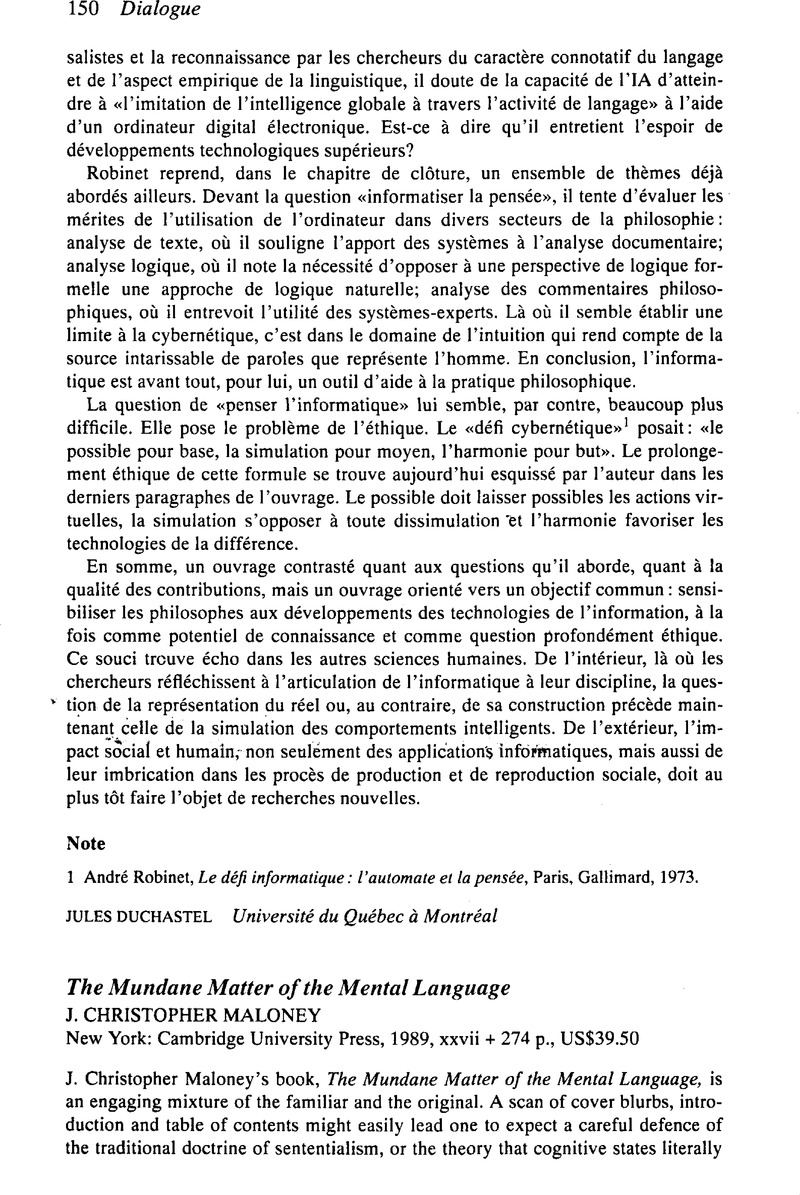No CrossRef data available.
Article contents
The Mundane Matter of the Mental LanguageJ. Christopher Maloney New York: Cambridge University Press, 1989, xxvii + 274 p., US$39.50
Published online by Cambridge University Press: 13 April 2010
Abstract

- Type
- Book Reviews/Comptes rendus
- Information
- Dialogue: Canadian Philosophical Review / Revue canadienne de philosophie , Volume 31 , Issue 1 , Winter 1992 , pp. 150 - 154
- Copyright
- Copyright © Canadian Philosophical Association 1992
References
Notes
1 Cf. Fodor, Jerry, “Methodological Solipsism Considered as a Research Strategy in Cognitive Psychology,” in his Representations (Cambridge, MA: MIT Press, 1981), p. 253Google Scholar.
2 It should be noted that while Maloney's MBC may seem like the position that Searle argues for (particularly in “Minds, Brains, and Computers,” Behavioral and Brain Sciences, 3 [1980]: 417–57),CrossRefGoogle Scholar there are important differences. Specifically, Searle argues that brain states are intentional because the brain has unique causal powers that we have so far not discovered elsewhere. Maloney, on the other hand, does not attempt to explain why the matter in which a sentence token is instantiated makes a difference, but merely offers this as an “inference to the best explanation” of the “fact” that our mental states are really intentional.- Moreover; Searle relies on the controversial tactic of appealing to the first-person point of view as being particularly important, while Maloney presents his arguments (and even his reconstruction of Searle's Chinese Room example) from a third-person perspective.
3 Maloney wavers on this point. At times, he claims only that functional descriptions might determine the specific content of mental states, while elsewhere he seems more firmly committed to this aspect of functionalism.
4 Sellars, Wilfrid, “Empiricism and the Philosophy of Mind,” in Feigl, Herbert and Scriven, Michael, eds., Minnesota Studies in the Philosophy of Science (Minneapolis: University of Minnesota Press, 1956), Vol. 1, p. 253–329. See especially p. 258–60,277–81.Google Scholar
5 Ibid., p. 284–88.




